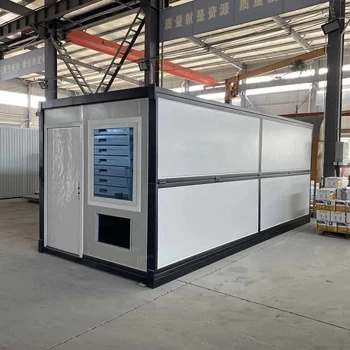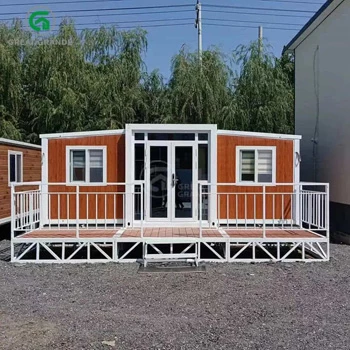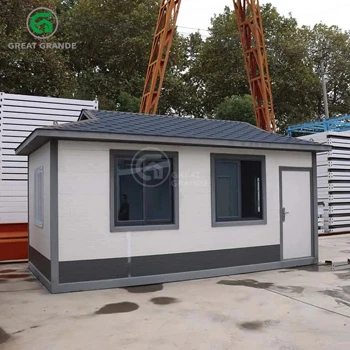Folding container houses have gained popularity in recent years due to their innovative design and practicality. These structures offer numerous advantages over traditional housing options, making them suitable for various applications ranging from temporary shelters to permanent residences. This article explores the unique features, benefits, and practical considerations of folding container houses.
Introduction to Folding Container Houses
Folding container houses are modular structures made from steel containers that can be folded for transportation and expanded on-site for installation. They provide a flexible and cost-effective alternative to conventional buildings, especially in remote or challenging environments. The ability to fold reduces transportation costs and makes them easier to store and deploy.
Environmental Sustainability
One of the standout advantages of folding container houses is their eco-friendly nature:
- Recycled Materials: Many folding container houses are constructed using recycled shipping containers, reducing environmental impact and promoting sustainability.
- Energy Efficiency: These structures can be designed with energy-efficient features such as insulation, solar panels, and efficient HVAC systems, lowering energy consumption compared to traditional homes.
- Minimal Site Disruption: Their modular construction minimizes on-site disruption and waste generation, making them suitable for environmentally sensitive areas.
Cost Effectiveness
The cost advantages of folding container houses make them an attractive option for various projects:
- Lower Construction Costs: Compared to conventional buildings, folding container houses generally require less material and labor, reducing overall construction expenses.
- Reduced Transportation Costs: Their ability to fold reduces transportation costs significantly, especially in remote locations or areas with limited access.
- Quick Installation: Rapid deployment and assembly save time and labor costs, making them ideal for urgent housing needs or temporary accommodations.
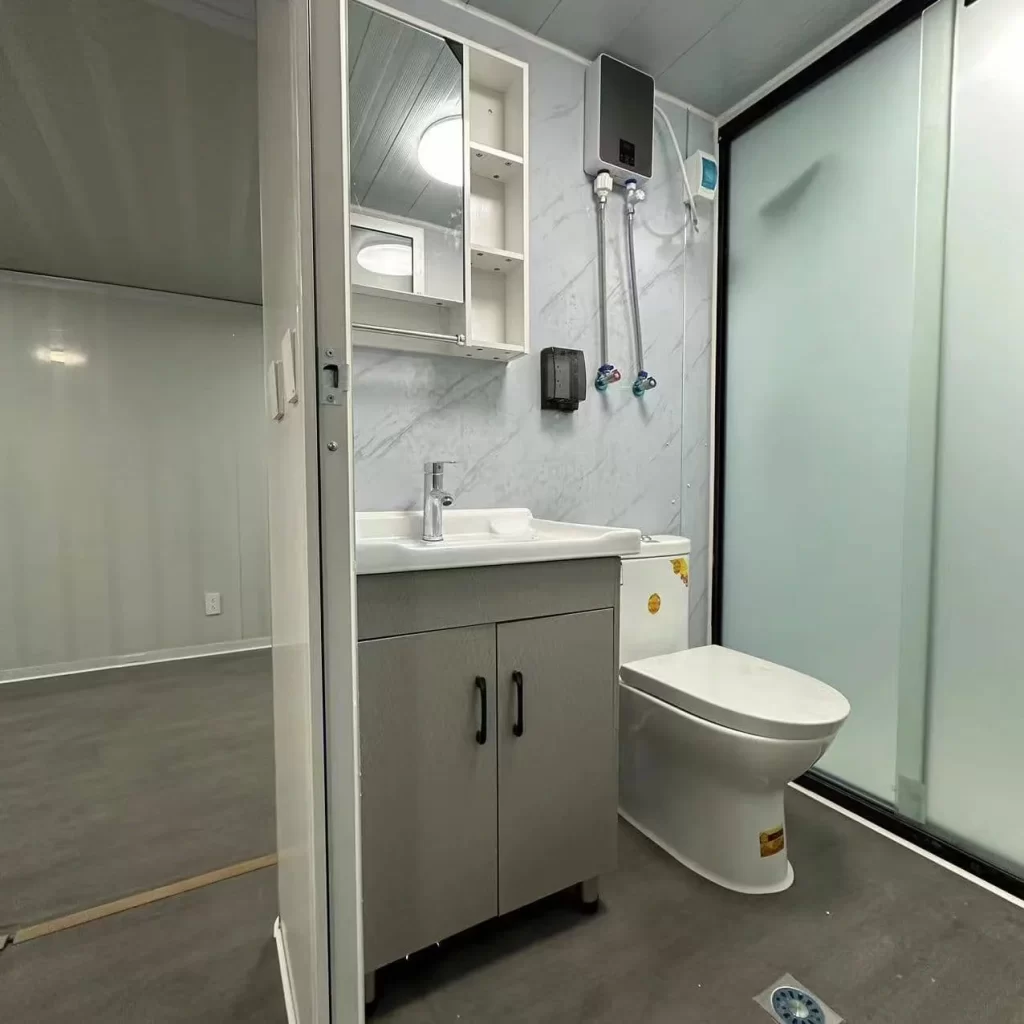
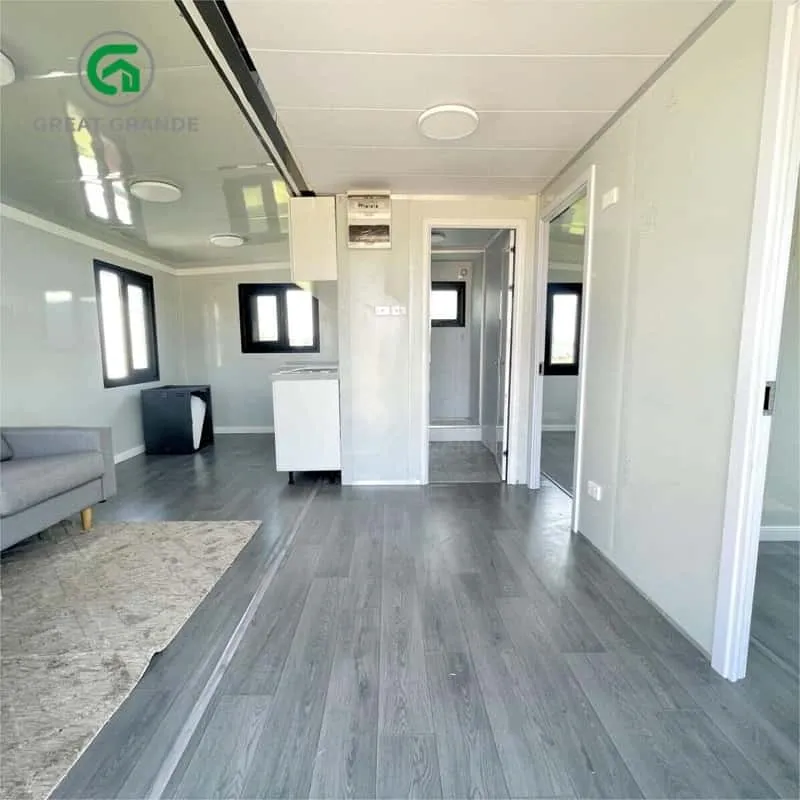
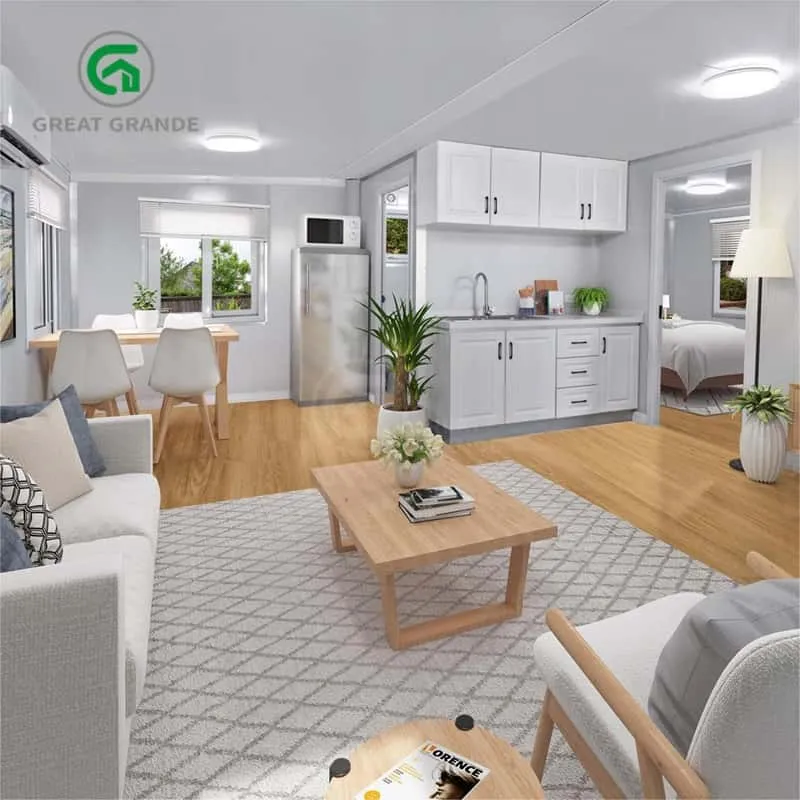
Design and Flexibility
The design versatility and flexibility of folding container houses contribute to their widespread use:
Modular Construction
Folding container houses are typically built in modules, allowing for easy customization and expansion:
- Scalability: Modules can be combined to create larger living or working spaces, adapting to different needs and requirements.
- Customization Options: Interior layouts and exterior finishes can be tailored to specific preferences or project specifications, enhancing aesthetic appeal and functionality.
Adaptability to Various Climates
These houses are designed to withstand diverse climatic conditions:
- Weather Resistance: Built from durable materials, folding container houses are resistant to harsh weather elements such as wind, rain, and snow.
- Insulation: Effective insulation options ensure comfort and energy efficiency in both hot and cold climates.
Applications of Folding Container Houses
The versatility of folding container houses allows for a wide range of applications:
Emergency Housing
During natural disasters or humanitarian crises, folding container houses serve as:
- Temporary Shelters: Quickly deployable to provide immediate relief and housing for displaced individuals or communities.
- Medical Facilities: Easily adaptable into temporary clinics or field hospitals to support emergency response efforts.
Residential Use
As permanent homes or vacation retreats, folding container houses offer:
- Affordable Housing: Suitable for individuals or families looking for affordable housing solutions without compromising comfort.
- Remote Locations: Ideal for remote or off-grid locations where traditional construction may be impractical or costly.
Considerations for Installation and Maintenance
While folding container houses offer numerous benefits, certain considerations should be taken into account:
Foundation Requirements
Proper foundation is crucial for the stability and longevity of folding container houses:
- Site Preparation: Ensure the site is level and capable of supporting the weight of the structure.
- Foundation Options: Depending on the terrain and local regulations, options include concrete slab, pier and beam, or screw piles.
Maintenance Tips
To maximize the lifespan and functionality of folding container houses:
- Regular Inspections: Check for signs of wear, damage, or corrosion, especially in areas prone to extreme weather conditions.
- Repairs and Upgrades: Promptly address any issues to prevent structural damage and ensure ongoing comfort and safety.
Comparison with Traditional Housing
A comparison table illustrates the differences between folding container houses and traditional housing:
| Aspect | Folding Container Houses | Traditional Housing |
|---|---|---|
| Construction Time | Quick assembly and deployment | Longer construction period |
| Cost | Lower initial and operational costs | Higher initial and operational costs |
| Flexibility | Modular and customizable | Less flexible in design changes |
| Environmental Impact | Uses recycled materials; lower footprint | Higher environmental impact |
This comparison highlights the advantages of folding container houses in terms of cost-effectiveness, flexibility, and sustainability.
Conclusion
In conclusion, folding container houses offer a compelling alternative to traditional housing with their blend of affordability, sustainability, and flexibility. Whether used for emergency relief, residential purposes, or commercial ventures, these modular structures continue to revolutionize the construction industry. As technology and design innovations evolve, folding container houses are likely to play an increasingly significant role in meeting diverse housing needs worldwide.
For those considering alternative housing solutions, exploring the benefits and practical applications of folding container houses can provide valuable insights into their suitability for various projects.
Remember, while each project has its unique requirements, the adaptability and efficiency of folding container houses make them a versatile option worth considering in today’s dynamic construction landscape.

